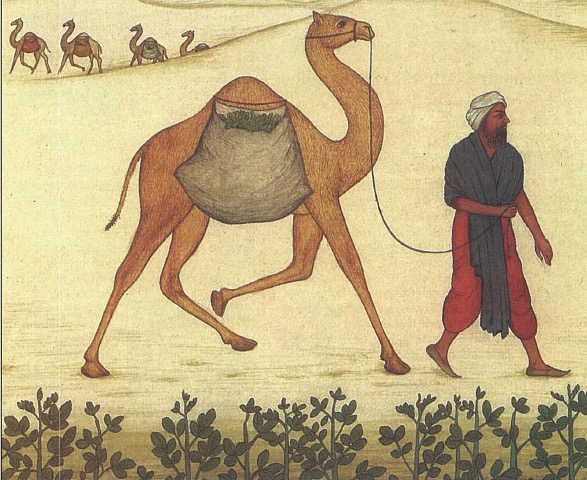Alternative medical practitioners share a common fate in America–they often serve as a “last resource” for patients whose conditions have not been improved by modern medicine. One such patient–we’ll call her Joyce–came to Dr. Virender Sodhi’s Ayurvedic and Naturopathic Medical Clinic in Bellevue, Washington, suffering from high blood cholesterol. She had already spent five years in a leading-edge treatment program run by a major university, but with no improvement. Her blood cholesterol count measured 418, double the normal limit. She was discouraged and, given a family history of heart trouble, worried for her future. Her husband, a doctor, was skeptical when he learned that central to her ayurvedic treatment–far from the high-tech regimen she had just endured–would be the resin of Indian bedellium, or guggal, a humble shrub that abounds in the arid, rocky tracts of Rajasthan, Gujarat and Karnataka.
It’s a common scenario, Dr. Sodhi told Hinduism Today. “Hundreds of patients come to the clinic concerned with high blood cholesterol. In Joyce’s case, she was given pancha karma treatment to cleanse her body, placed on a kapha-pacifying diet and given guggal, which is very effective in regulating lipids in the body, along with other herbs to treat her liver and rejuvenate her digestive functions. Within three months, her cholesterol dropped to 167, well within average normal levels.” With similar treatment, a 49-year-old man’s cholesterol level dropped from 277 to 188 in five months. A woman’s 239 level dropped to 129 in three months. A third patient, with an off-the-chart triglyceride level of 2,121, saw her level fall to 178 in only three months.
Despite such astounding examples and clinical studies in India showing improvement for nearly every patient treated, guggal is yet to gain wide acceptance in the US. This is unfortunate, considering that cardiovascular disease is the nation’s number one killer, accounting for two out of every five deaths, at a rate of 2,500 per day.
Guggal is also a cure for arthritis and rheumatism. A 27-year-old female patient of Dr. Sodhi had pains in her joints and was regularly taking large doses of potent allopathic drugs to keep her arthritis in check. Fortunately, her father, a medical doctor with first-hand knowledge of the long-term side effects of the drugs–including diabetes, obesity and ulcers–urged her to seek alternative treatment to free her from the drug regime.
Dr. Sodhi reports, “She underwent a cleansing treatment, modified her diet and took regular doses of guggal and boswelia, another natural herb. We reduced her allopathic drug intake to the bare minimum, five milligrams a day. Recently she returned from successfully completing the Pacific Crest Trail, a 2,000-mile hike from Mexico to Canada, without inconvenience from her arthritis.”
Guggal is extracted from the Indian bedellium by making incisions in the bark during the winter. The resulting fragrant golden resin burns in fire, melts in the sun and forms a milky emulsion when stirred into hot water. Originally it was used for religious rituals. The resin was traded between India and Greece in the first century ce, the very time the ayurvedic treatises that describe its characteristics were written.
Those treatises are full of praise for guggal and its curative actions–healing bone fractures and inflammations, treating obesity, ulcers, hay fever, rheumatism and thyroid conditions, to name a few. It has none of the side effects generally associated with allopathic drugs such as clofibrates (used to reduce cholesterol levels), which can cause liver damage, gall stones and cancer.
In its pure resin form, guggal can cause diarrhea or skin rashes if taken in excess. But in its extracted form, called guggal-lip, it has no known side effects and is gentle on the body. It is believed to work by regulating the thyroid. A standard dose of guggal-lip is 250-500mg, two to three times a day. Guggal, advises Dr. Sodhi, is one antidote for our modern diet of highly processed, oily and salty food.
DR. VIRENDER SODHI, MD (AYURVED), ND, AYURVEDIC AND NATUROPATHIC CLINIC, 2115 112TH AVENUE NE, BELLEVUE, WASHINGTON 98004, USA
